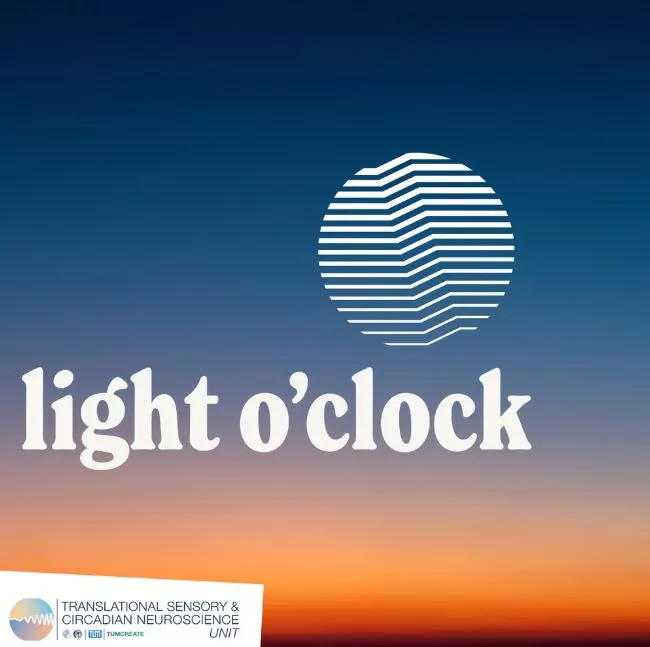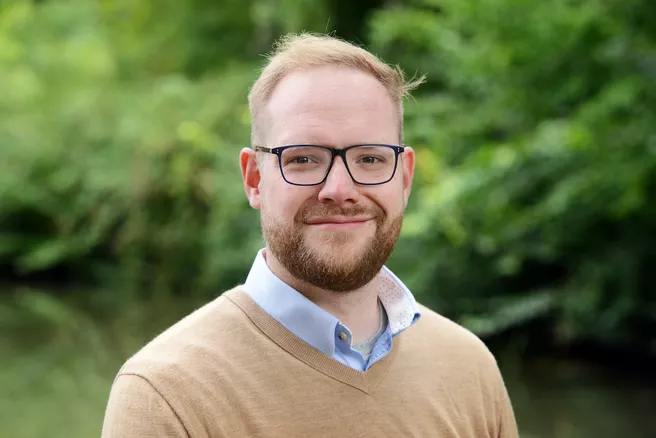May 16, 2024, marks the annual International Day of Light, a date that commemorates the groundbreaking introduction of the laser by Theodore Maiman in 1960. The initiative to establish the holiday by UNESCO, launched in 2018, draws attention to the many uses and meanings of light for the planet and its impact on people.
The International Day of Light aims to raise awareness of the importance of light science and its applications. Various areas, such as sustainable development, health, and education, are addressed to emphasize the relevance of scientific work.
This year's Day of Light motto is "Light in our Lives." In keeping with this, Prof. Dr. Manuel Spitschan, Head of the Assistant Professorship of Chronobiology & Health, has recorded a special edition of the podcast "Light O'Clock" with doctoral student Carolina Guidolin to talk about light and its effects and to answer questions from listeners.
Light O'Clock and the UNESCO Day of Light
"Our internal clock is synchronized with the environment by the light-dark cycle. Electric light and light pollution can disrupt the internal clock and lead to negative health consequences." The neuroscientist explains: "The exact effect of light exposure depends on the time of day. For example, light during the day can help us stay alert. On the other hand, light in the evening and at night disrupts the hormone balance."
A tiresome topic when waking up: would you prefer the shrill alarm clock or external light sources? Prof. Spitschan has a clear idea: "There have been several studies in which the use of simulation lamps has been investigated and recommended to get the circadian system going. I use one because it's a good way to wake up, and for me, it's much better than an annoying alarm clock."
Prof. Spitschan explains that most LED technologies today can change not only the intensity but also the color temperature. In this way, it is already possible to adapt to your own needs. "But if you don't know the circadian needs of your brain and body, how can you adjust?"
The podcast "Light O'Clock," launched at the beginning of this year, deals with the current state of knowledge on the physiological effects of light on humans. "Although many correlations still need to be scientifically clarified, we already know that one solution lies in the 'light days, nights' recipe," says presenter Guidolin, who is doing her PhD in Prof. Spitschan's research group and interviews various international scientists in the podcast.
Conclusion of the NETIAS-CAT group "Light and human health"
Prof. Spitschan has led a research group at the Network of European Institutes for Advanced Study (NETIAS) as part of the Constructive Advanced Thinking program since 2021. During this work, the research group developed a checklist as a guideline for dealing with light stimuli in (clinical) studies. The results of this work were published in the open-access article "ENLIGHT Consensus Checklist and Guidelines for reporting laboratory studies on the non-visual effects of light in humans" in the international journal "eBioMedicine" from the Lancet family.
The project included visits to five renowned European Institutes for advanced studies (Aarhus Institute of Advanced Studies, Zukunftskolleg Konstanz, Wissenschaftskolleg zu Berlin, Montpellier Advanced Knowledge Institute on Transitions). The project has now been completed. One outstanding project result is the ENLIGHT checklist, which standardizes and harmonizes the documentation of lighting conditions in clinical studies (e.g., on the effect of light therapy). In addition, further outputs are planned to be published in international journals.
In addition to Prof. Spitschan, the NETIAS-CAT group also included Dr. Elise McGlashan (University of Melbourne, Australia), Dr. Ray Najja (National University of Singapore, USA), Dr. Laura Kervezee (Leiden University Medical Centre, Netherlands) and Dr. Renske Lok (Stanford University, USA).
To the homepage of the Rudolf Mößbauer Assistant Professorship of Chronobiology & Health
To the homepage of the Translational Sensory and Circadian Neuroscience Unit (MPS/TUM/TUMCREATE)
To the podcast "Light O'Clock"
To the homepage of the NETIAS research group "Light and human health"
To the homepage of the ENLIGHT checklist
Contact:
Prof. Dr. Manuel Spitschan
Rudolf Mößbauer Assistant Professorship of Chronobiology & Health
Georg-Brauchle-Ring 60/62
80992 Munich
phone: 089 289 24544
e-mail: manuel.spitschan(at)tum.de
Text: Bastian Daneyko
Photos: private

